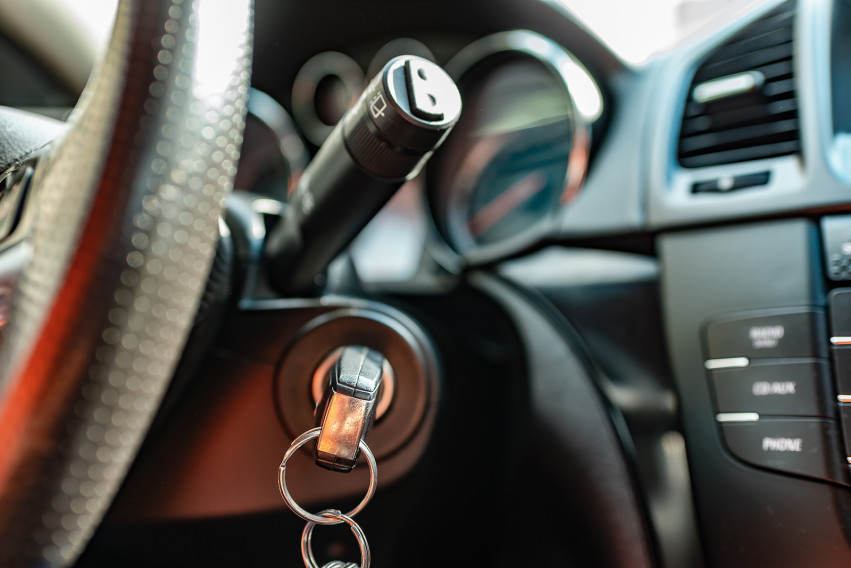DUI/DWI
When you have been arrested on suspicion of Driving While under the Influence of Intoxicating Liquor or Drugs, you need the advice of an experienced criminal defense attorney.
When you have been arrested on suspicion of Driving While under the Influence of Intoxicating Liquor or Drugs, you need the advice of an experienced criminal defense attorney.
All DWI criminal charges are serious, whether this is your first suspected offense or a repeat arrest. Criminal penalties can be significant and last for years, sometimes for life, affecting your future and your family. Working with a competent criminal defense attorney can make a lasting difference in the direction of your life. A knowledgeable criminal defense attorney will consider all aspects of your case to build a successful strategy and reduce negative consequences. With a complete understanding of your case, your attorney can guide you through every stage and achieve the best possible outcome.
Bonnie Sisak is an experienced felony and misdemeanor trial attorney and understands how to build a strong defense against all DWI criminal charges. As a former New Hampshire Public Defender, she's handled over a thousand cases in her 13 years of criminal practice and tried dozens of cases to a judge and a jury, including all charges under the Motor Vehicle Code.
Attorney Sisak recognizes that people can be wrongfully accused or caught in a cycle of mistakes. She also knows there are always ways to contest even a difficult case. No matter what, Attorney Sisak will listen and be your voice, advocate, and champion to avoid injustice.
Whatever DWI criminal charge you are facing, Attorney Sisak is ready to support you during this trying time.

Under Section 265-A:2 of the New Hampshire Motor Vehicle Code, DWI and DUI are interchangeable. DWI and DUI mean Operating Under the Influence of Drugs or Liquor, Driving, or Operating With Excess Alcohol Concentration.
New Hampshire's DWI laws are extremely strict. It is illegal for a person 21+ to drive in New Hampshire with an alcohol concentration of 0.08 or higher. For a person under 21, the alcohol concentration rate drops to 0.02. Under the law, any attempt to drive a vehicle can lead to an arrest and charge.
Additionally, anything impairing a person's driving ability is illegal in New Hampshire. That includes intoxicating liquors, controlled drugs, prescription drugs, over-the-counter drugs, or any other substance impairing a person's ability to drive. DWI convictions carry significant penalties that can include mandatory jail time, fines, license restrictions, required drug and alcohol treatment plans, fees associated with treatment, the potential requirement to install an interlock device, and to undergo random drug and alcohol screenings.
Attorney Bonnie Sisak has experience representing clients facing all DWI charges under the New Hampshire Motor Vehicle Code.
As an experienced felony and misdemeanor trial attorney, she understands how to defend and litigate DWI cases to verdict. She manages legal strategy with compassion, tenacity, attention, and thorough preparation.
Section 265-A:18 of the New Hampshire Motor Vehicle Code directs the Penalties for Intoxication or Under Influence of Drugs Offenses. All convictions carry serious penalties that can include mandatory jail time, fines, license restrictions, required drug and alcohol treatment plans, fees associated with treatment, the potential requirement to install an interlock device and to undergo random drug and alcohol screenings.

Generally, a person convicted on a first-time DWI charge will be guilty of a class B misdemeanor. The penalty will include a fine of at least $500 plus fees. Additionally, the court will require the person to submit to an alcohol and drug abuse screening. The person may be required to follow a treatment plan and be required to pay all associated fees. The person will also lose their driver's license for at least nine months, potentially longer. To restore the driver's license, the person must complete an impaired driver education program. Additionally, the court may order random urinalysis testing. A class B misdemeanor DWI does not include jail as a penalty. Attorney Sandra Kenney has experience helping clients to prepare for unexpected life changes. Contact her today so you can feel comfortable with your plans now and in the future.

Repeat DWIs carry mandatory jail sentences in New Hampshire. For a second driving offense conviction, the person will be guilty of a class A misdemeanor. The penalties for a class A misdemeanor include a fine of at least $750 plus fees. In addition, if the prior conviction were within two years, the person convicted would spend at least 30 days in the county correctional facility. If the prior conviction were more than two years but less than ten years prior, the person would spend at least five days in the county correctional facility. New Hampshire will require those convicted of a second offense to undergo substance use disorder evaluations and potential treatment plans. In addition, the person's driver's license will be revoked for at least three years.
For a third driving offense conviction, the person will be guilty of a class A misdemeanor. The penalties for a class A misdemeanor include a fine of at least $750 plus fees. In addition, the person will be sentenced to a mandatory sentence of not less than 180 consecutive days of which 150 shall be suspended. The court will refer the person for a full substance use disorder evaluation.
In addition, the person's driver's license will be revoked indefinitely and will not be eligible to be restored for at least five years.

For a fourth driving offense conviction, the person will be guilty of a felony. The penalties for a felony include all the penalties for 3rd offense convictions, and the person's driver's license will be revoked indefinitely. It will not be eligible to be restored for at least seven years. The license suspension will be longer if negligent homicide is a prior offense.

Aggravated Driving While Intoxicated carries penalties similar to a DWI 2nd offense. A person convicted of aggravated driving while intoxicated will be guilty of a class A misdemeanor. In addition, the person will face greater charges if a collision and injury occur.
The class A misdemeanor conviction for aggravated driving while intoxicated penalty will include a fine of at least $750 plus fees. In addition, the person will be sentenced to a mandatory sentence of typically five days with the potential of 12 months in jail. The person will also lose their driver's license for at least eighteen months, potentially up to two years. The person must complete a service plan to restore the driver's license. The court will order an interlock device installed in the person's car. Additionally, the court may order random urinalysis testing.
Every class A misdemeanor variation of DWI carries a maximum possible punishment of 12 months in jail, a $2,000 fine, and 2 years of probation.
When the aggravated driving while intoxicated charge involves a collision that resulted in serious bodily injury to another, the person will face class B Felony. The class B felony conviction will include a fine of at least $1,000 and fourteen days spent in the county correctional facility. You could be sent to prison for a felony DWI. All other penalties related to a class A misdemeanor aggravated driving while intoxicated conviction will also apply.
If under 21 at the time of the driving offense, a person convicted of a DWI or aggravated driving while intoxicated will face at least one year of license revocation.
Attorney Bonnie Sisak has experience representing clients facing all charges under the New Hampshire Motor Vehicle Code.
As an experienced felony and misdemeanor trial attorney, she understands how to defend and litigate DWI cases to verdict. She manages legal strategy with compassion, tenacity, attention, and thorough preparation.

In addition to the criminal charges you are facing, you may also have your license privileges revoked or suspended by the DMV. This is a separate hearing from the court proceeding. Temporary permits to drive only last 30 days. You must request your ALS hearing within that time period. Failure to request the hearing within thirty days will require a minimum 180 days license suspension. An experienced criminal defense attorney can help with an administrative review or hearing to fight non-judicial restrictions on your license by an Administrative License Suspension Proceeding at the Department of Safety.
As an experienced felony and misdemeanor trial attorney, Attorney Sisak understands how to manage the ALS Hearing process with tenacity, attention, and thorough preparation.